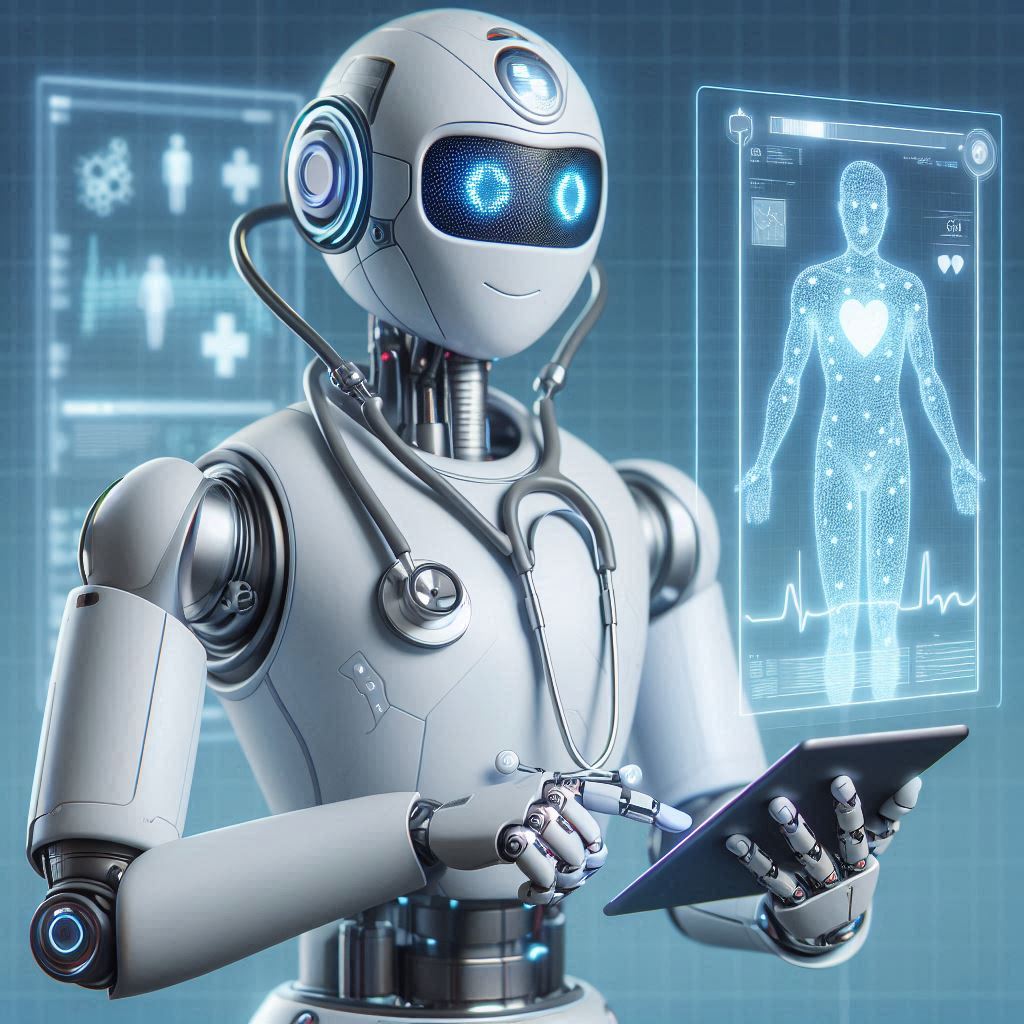Continued Advancements in AI-Driven Diagnostics and Personalized Medicine
Imagine a world where a machine can detect the early signs of diseases even before they manifest noticeable symptoms, or where treatments are tailored specifically to your genetic makeup. This isn’t science fiction; it’s the reality we’re rapidly moving towards thanks to advancements in AI-driven diagnostics and personalized medicine. Let’s dive into this fascinating journey and see how AI is transforming healthcare.
AI-Driven Diagnostics
AI is revolutionizing diagnostics with its ability to analyze complex medical data more accurately and swiftly than ever before. Here are some of the groundbreaking applications of AI in diagnostics:
Examples of AI in Diagnostics
- Early Cancer Detection
- Skin Cancer: AI algorithms are now capable of detecting skin cancer with a level of accuracy comparable to, or even surpassing, that of expert dermatologists. Imagine a scenario where a simple photo of a mole taken with your smartphone can be analyzed in real-time, providing early warning signs and potentially saving lives.
- Breast Cancer: Google Health has been working on AI models that improve the accuracy of breast cancer screening, reducing false positives and ensuring timely diagnosis and treatment.
- COVID-19 Detection
- During the pandemic, AI played a crucial role in detecting COVID-19. AI models trained to analyze chest X-rays and CT scans could identify the presence of the virus, assisting healthcare professionals in diagnosing and treating patients swiftly.
- Predicting Alzheimer’s Disease
- Researchers are utilizing AI to predict the onset of Alzheimer’s disease by analyzing patterns in brain scans and other medical data. This early detection allows for timely intervention, potentially slowing the progression of the disease.
Personalized Medicine
Personalized medicine, driven by AI, is transforming healthcare by providing treatment plans tailored to individual patients’ genetic and clinical profiles. Here’s how:
Examples of Personalized Medicine
- IBM Watson for Genomics
- This AI – powered tool analyzes vast amounts of genomic data to provide personalized treatment plans for cancer patients. By identifying specific mutations in a patient’s DNA, IBM Watson for Genomics suggests targeted therapies that are most likely to be effective.
- Tempus
- Combining machine learning with clinical and molecular data, Tempus offers personalized treatment recommendations, particularly for cancer patients. This approach ensures that each patient receives a treatment plan tailored to their unique genetic makeup and medical history.
Tools and Companies Involved
Several cutting-edge tools and companies are at the forefront of AI-driven diagnostics and personalized medicine:
- Google Health: Developing AI systems for various diagnostic applications, including breast cancer screening and maternal ultrasound interpretation.
- IBM Watson Health (now Merative): Offers AI applications that assist healthcare providers in developing personalized treatment plans.
- DeepMind Health: This division of DeepMind is focused on applying AI to healthcare, working on projects that range from eye disease diagnosis to predicting patient deterioration.
- Philips Healthcare: Implementing AI in patient monitoring systems and precision medicine solutions.
- PathAI: Specializes in AI-powered pathology, aiding in accurate disease diagnosis.
What’s Next in the Next 2 to 5 Years
The future of AI in healthcare is incredibly promising. Here’s what we can expect in the next few years:
- Enhanced Predictive Analytics
- AI will continue to improve predictive models for disease outbreaks and patient outcomes. By analyzing vast datasets, AI can identify trends and patterns that humans might miss, leading to more accurate predictions and better-prepared healthcare systems.
- Greater Integration with Wearable Devices
- Wearable health devices, like smartwatches, will become more sophisticated, providing real-time health data that AI can analyze. This continuous monitoring will enable personalized health insights and early detection of potential health issues.
- Expansion of Telemedicine
- AI will enhance telemedicine platforms, making healthcare more accessible, especially in remote or underserved areas. AI-driven diagnostic tools can support healthcare providers in delivering accurate care via telemedicine.
- Ethical AI Development
- As AI becomes more integral to healthcare, there will be a heightened focus on developing AI solutions that are ethical, transparent, and unbiased. Ensuring patient data privacy and addressing biases in AI algorithms will be paramount.
- AI-Powered Drug Discovery
- AI will play a critical role in accelerating the drug discovery process. By analyzing biological data, AI can identify potential drug candidates faster than traditional methods, leading to the development of new treatments and therapies.
As we continue to witness these advancements, the synergy between AI and healthcare will undeniably reshape the landscape of medicine. The future promises more accurate diagnoses, personalized treatments, and ultimately, improved patient outcomes. The journey has just begun, and the possibilities are endless.

